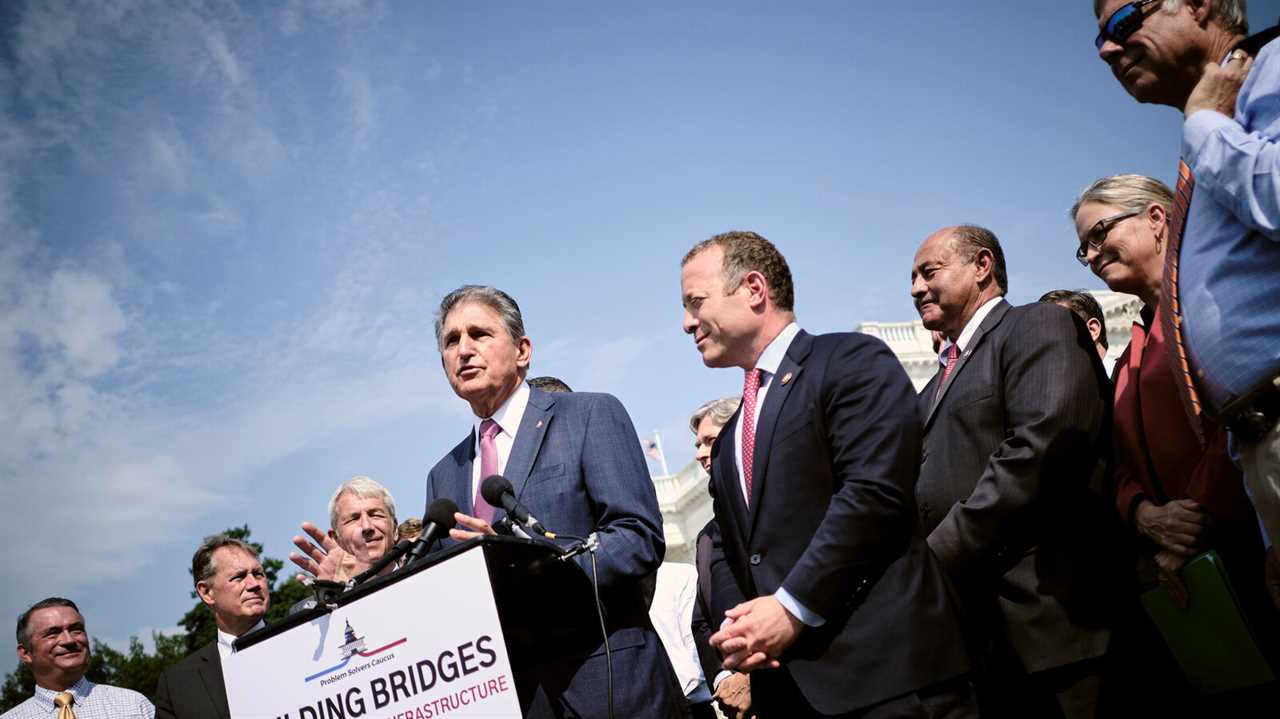
Senate Democrats will return from their summer recess on Monday to confront intraparty divisions over the scope and structure of a $3.5 trillion economic policy bill, as the House races to finish cobbling together the package in the coming weeks.House Democrats have been working to coalesce around details of the proposal, including releasing their opening proposal on Monday for tax increases on wealthy corporations and individuals, but a number of hurdles remain to ensure that the package can clear the chamber as early as this month. Democratic senators are likely to use a caucus lunch on Tuesday to walk through the work that has been completed over the recess. House committees continue to steadily advance pieces of the legislation.But the deep differences, including disagreement on the size and funding of the package, have festered for months. Democrats, with razor-thin majorities in both chambers, are using an arcane budget process known as reconciliation to shield the larger package from a Republican filibuster in the Senate and advance what could be the most significant expansion of the social safety net since the 1960s.The differences are most apparent over the revenue provision, as moderate Democrats resist some of the sweeping tax increases Mr. Biden and liberal Democrats have proposed.The proposal from House Democrats would raise the corporate tax rate to 26.5 percent for the richest businesses and impose an additional surtax on individuals who make more than $5 million. But it is unclear how much that will change in the coming weeks, as people briefed on the details cautioned that the text could still change to secure enough Democratic votes.Key representatives of the opposing wings of the caucus appeared on multiple news shows on Sunday morning to defend their positions before the Senate’s return.Senator Joe Manchin III, Democrat of West Virginia, reiterated that he would not support spending $3.5 trillion, saying that Senator Chuck Schumer of New York, the majority leader, “will not have my vote” on a package of that size.“Chuck knows that — we’ve talked about this,” Mr. Manchin said on CNN’s “State of the Union.” “We’ve tried to help Americans in every way we possibly can, and a lot of the help that we’ve put out there is still there, and it’s going to run clear until next year, 2022, so what’s the urgency?”He also voiced skepticism that the legislation would be finished by the end of the month, adding that the hasty time frame “makes no sense at all,” and raised concerns about some clean energy and tax provisions.But when asked later on “State of the Union” about Mr. Manchin’s comments, Senator Bernie Sanders, the Vermont independent who leads the Budget Committee, said “it’s absolutely not acceptable to me” to reduce the size of the package.“I don’t think it’s acceptable to the president, to the American people or to the overwhelming majority of the people in the Democratic caucus,” he added. “Many of us made a major compromise in going from the $6 trillion bill that we wanted.”Speaker Nancy Pelosi of California has committed to a Sept. 27 vote on the bipartisan infrastructure package in the House, and Democrats hope to have completed the second economic package before then. The top Senate rules enforcer has also begun hearing arguments over whether certain provisions in the $3.5 trillion bill adhere to the strict rules that govern the reconciliation process.Senior leaders will also have to soon confront a potential lapse in government funding on Oct. 1 if Congress does not act, as well as the looming deadline to prevent the federal government from defaulting on the national debt.By: Emily Cochrane
Title: As Senate Democrats return to Washington, divisions remain over a spending bill.
Sourced From: www.nytimes.com/2021/09/13/us/politics/spending-bill-budget-senate.html
Published Date: Mon, 13 Sep 2021 19:16:33 +0000
Read More
 UK PoliticsWorld PoliticsVideosPrivacy PolicyTerms And Conditions
UK PoliticsWorld PoliticsVideosPrivacy PolicyTerms And Conditions
